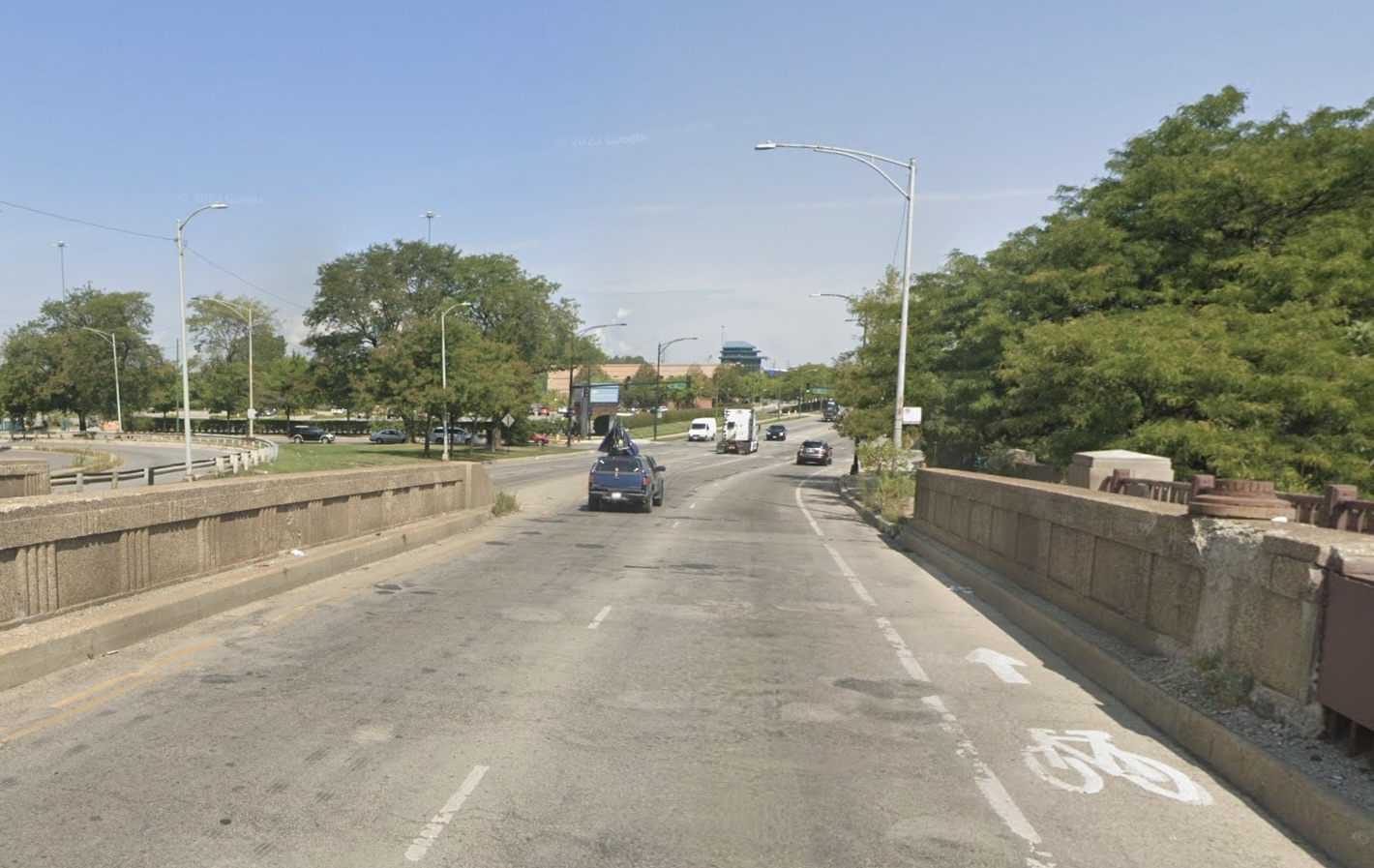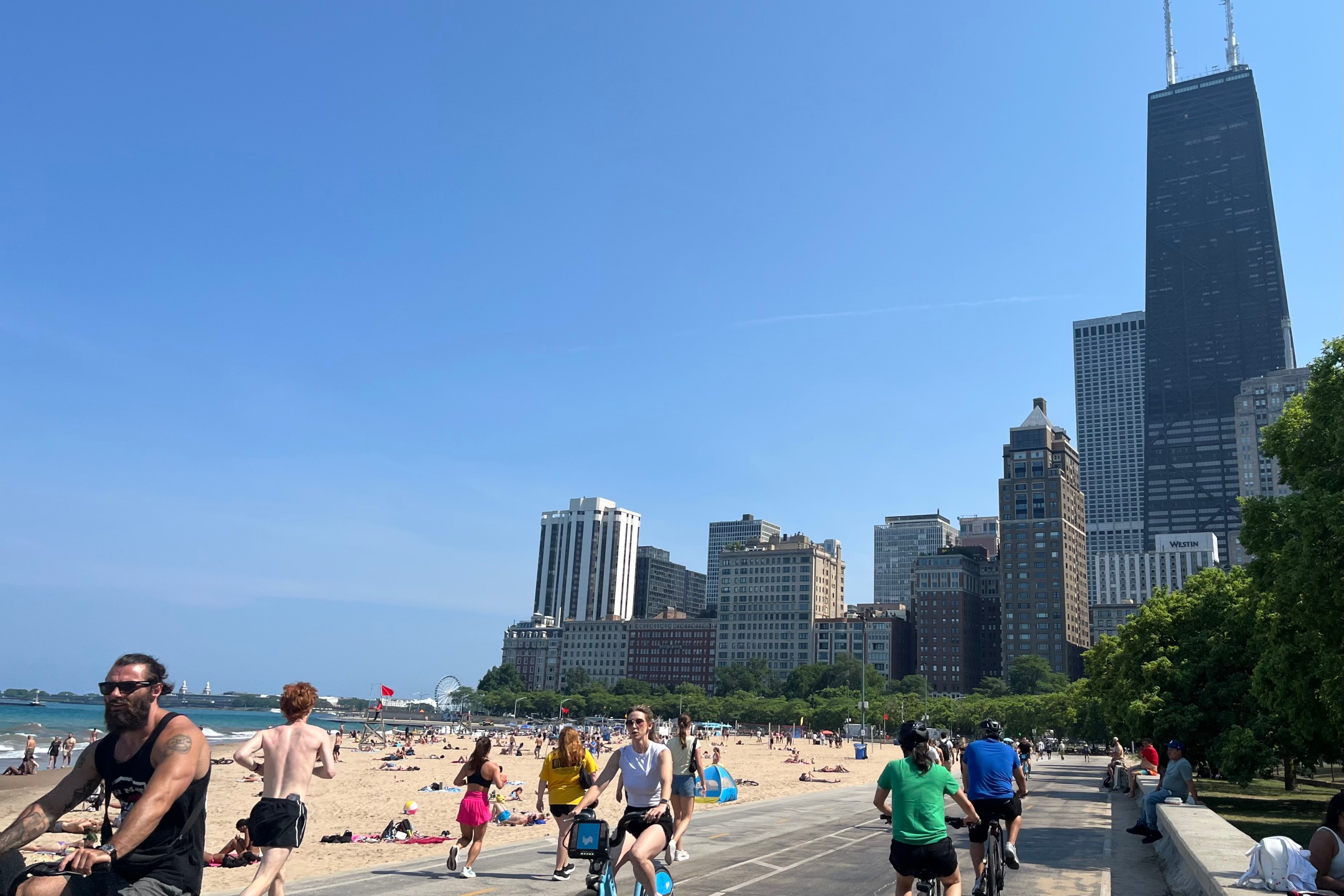
Last month Safe Streets advocates noted that the Chicago Department of Transportation's plan for rebuilding bridges on Division Street on the Near North Side didn't call for physically protecting bike riders from drivers.
Now it's deja vu all over again as CDOT is ready to reconstruct the Western Avenue bridge over the Chicago Sanitary and Ship Canal on the Lower West Side. Even though the bridge already has non-protected bikeways, and CDOT is planning to install pre-cast curb protection, cycling advocates say more robust protection is needed for bike riders than what is currently planned. More on that in a bit.
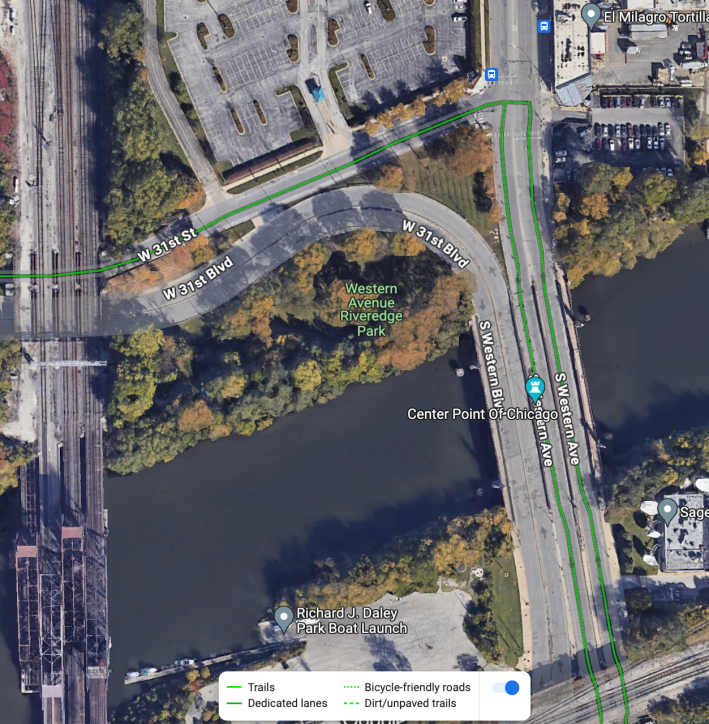
A public information meeting about the Western Avenue Bridge Rehabilitation was held on Wednesday, April 3. It was hosted by the Chicago Department of Transportation and the 12th Ward at the Arturo Velasquez Westside Technical Institute, 2800 S. Western Ave.
Alright Twitter, do your thing. Let's show up for safe streets. RSVP:https://t.co/hWRXoHz6va pic.twitter.com/nn4xsTUJlM
— foxyjewishmama (@foxyjewishmama) March 28, 2024
"This meeting is a long time coming," said Bill Drew, chief of staff for local alderperson Julia Ramirez, who didn't attend. "I'm sure to get to this meeting, you crossed over the Western bridge... 1940, I believe was the last time it was fixed. So we want to make sure that you all know what the plan is. We also want to make sure that you know that we prioritize safety for all roadway users, whether that be somebody who's in a [motor] vehicle, on a bike, walking or taking the bus."
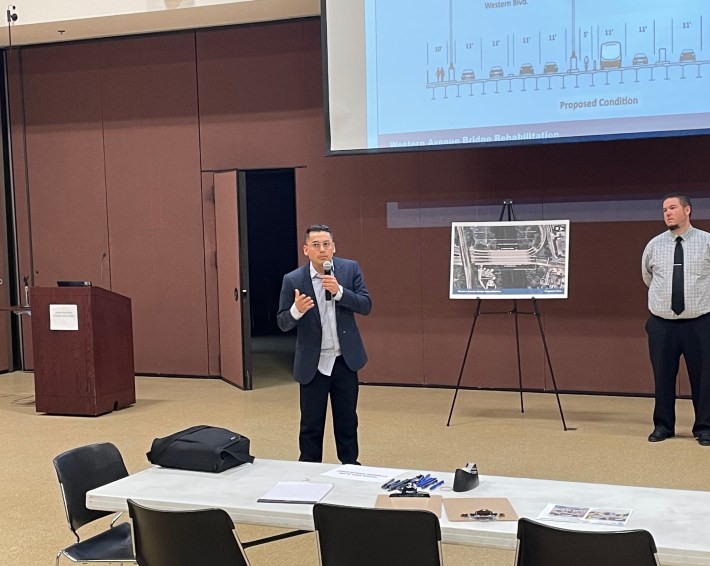
The meeting was an open house meeting where attendees got to go up and speak directly to officials. Standing beside a series of diagrams were engineers from CDOT to answer questions. There were also comment cards for people to fill out and hand in. However, not all the attendees were pleased with the open house style of the meeting.
"They're okay when you've already had a certain number of people that have RSVPed or that have committed to coming and providing feedback," said attendee Edaith Tovar. "It would have been useful to have Post-Its so that folks could write up their ideas and put them directly onto the board." She added that it might have been more useful to have an open-style community meeting where residents can voice their concerns to the entire design team and all residents who are there.
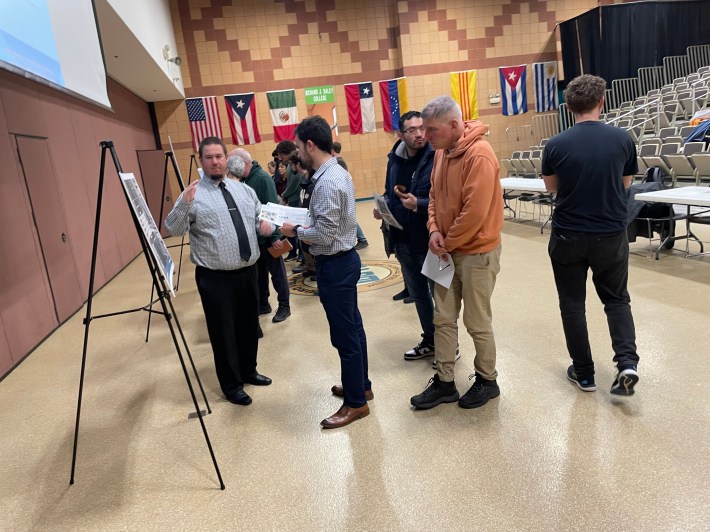
According to HistoricalBridges.org, the Western Avenue Bridge was built in 1940 by the Strobel Steel Construction Company. The construction will take place in three stages over 18 months, but the officials said all the vehicle access will be maintained by using different sections of the multi-lane bridge. The added that access to nearby businesses and facilities will also be maintained during construction.
In addition to replacing the bridge superstructure, new abutments will be added, as well as limestone wingwalls, concrete parapets, and decorative pedestrian railings. But, similar to CDOT's Division bridge plans, advocates argued that so far the Western bridge proposal doesn’t include robust protection for people on bikes, although that might change in the future.

"According to this engineer, they're gonna have those low, piece by piece concrete curbs," said attendee James R. Anderson. "That's probably better than just plastic delineators... It will help drivers recognize they're not supposed to drive in the bike lane. But it's not going to help if they lose control of their vehicle and end up in the bike lane anymore. It's not as good as a steel bollard or concrete bollard."
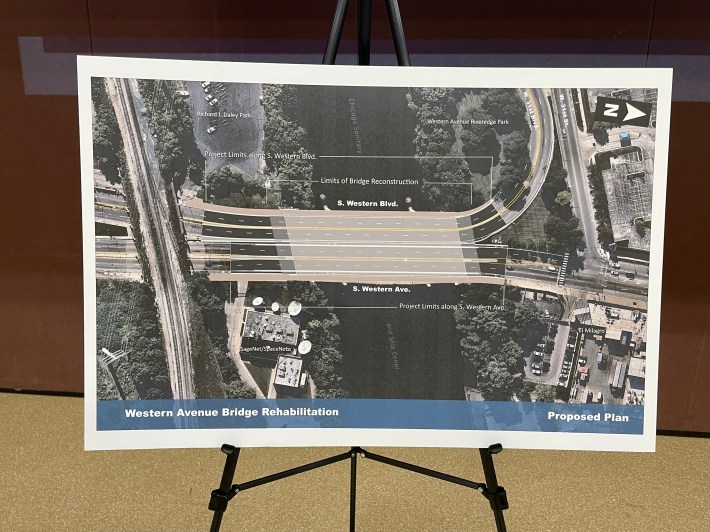
Said cyclist Nathan Roberts, "My concerns are that the bike lanes don't seem to be safe where they have minimal division from the cars and are not kept available throughout the year during the construction project."
Roberts was also hoping the project would include bus-only lanes. "It seems that many people were hoping for dedicated bus lanes based off of the diagram and were very disappointed when they learned that it was just for size reference, and that no dedicated bus lanes were going to be provided, and it's going to be full access roads for eight lanes.
Hopefully advocates can successfully lobby the City for a plan that includes more protection for bike riders, plus dedicated lanes for straphangers.
Read an update of the project from the 12th Ward here.

Did you appreciate this post? Please consider making a tax-deductible donation to help Streetsblog Chicago keep publishing through 2025. Thank you.
